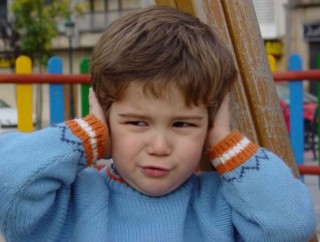Ashford Clinic Blog
Loud Noises and Hearing

Noise is an unavoidable part of everyday life. From the hum of your refrigerator to normal conversation to sirens, we live in a noisy world. Most sounds and noises that we regularly experience in our environment occur at safe levels that do not harm our hearing. However, loud noises, even those experienced for a brief time, can be harmful and even cause temporary or permanent hearing damage. There are things you should know about noise and how it can impact your hearing.
The Effect of Noise on Your Hearing
So, what happens when you are exposed to loud noises? To put it simply, there are hair cells in your inner ear that are responsible for sensing sound or speech. When you hear a loud noise above 85 decibels (dB) it begins to damage or kill these cells in the inner ear, which can result in various forms of hearing damage. The louder the noise and the longer you are exposed to them, the more cells destroyed. As the number of these cells decreases, so does your hearing.
Sensory Hearing Loss, which includes Noise Induced Hearing Loss, is the most common form of hearing loss. It is estimated that 1 in 10 Americans deal with hearing loss that affects their ability to understand normal speech. The most common cause of hearing loss is excessive noise exposure, so understanding sources of loud noises in your everyday life and how to mitigate them is very important in preserving your hearing.
What Can Be Done About Noise?
While some loud noises can be part of your occupation especially if you work in construction, landscaping, or the music industry many other sources of loud noise can be avoided or mitigated. Generally, the threshold for “safe volume” is approximately 85 dB. To put that in perspective, here are some average volume levels (in decibels) of some familiar sounds:
- Humming of a refrigerator = 45 dB
- Normal conversation = 60 dB
- Noise from heavy city traffic = 85 dB
- Motorcycles = 95 dB
- MP3 player at maximum volume = 105 dB
- Sirens = 120 dB
- Firecrackers and firearms = 150 dB
While some forms of Sensory Hearing Loss are related to genetics or certain medical conditions, Noise Induced Hearing Loss can be prevented by taking steps to prevent hearing damage and protect your hearing, like:
- Be aware of potentially damagecausing noises
- Keep recreational noise (including music, radio, TV, etc.) at a reasonable volume
- Wear earplugs or other protective devices when engaged in a loud activity
- Move away from the noise if the volume cannot be reduced and protection is ineffective
- Be aware of and alert to loud noises in your environment
- Protect the ears of children who are too young to protect their own
- Have your hearing tested if you are concerned about your hearing
While treatment options vary depending on the type and cause of hearing loss, you should always consult your doctor to determine the best course of action for you. If you are concerned about Noise Induced Hearing Loss or your hearing in general, give us a call at 706-248-6860 to make an appointment at the Ashford Clinic in Athens, GA.


